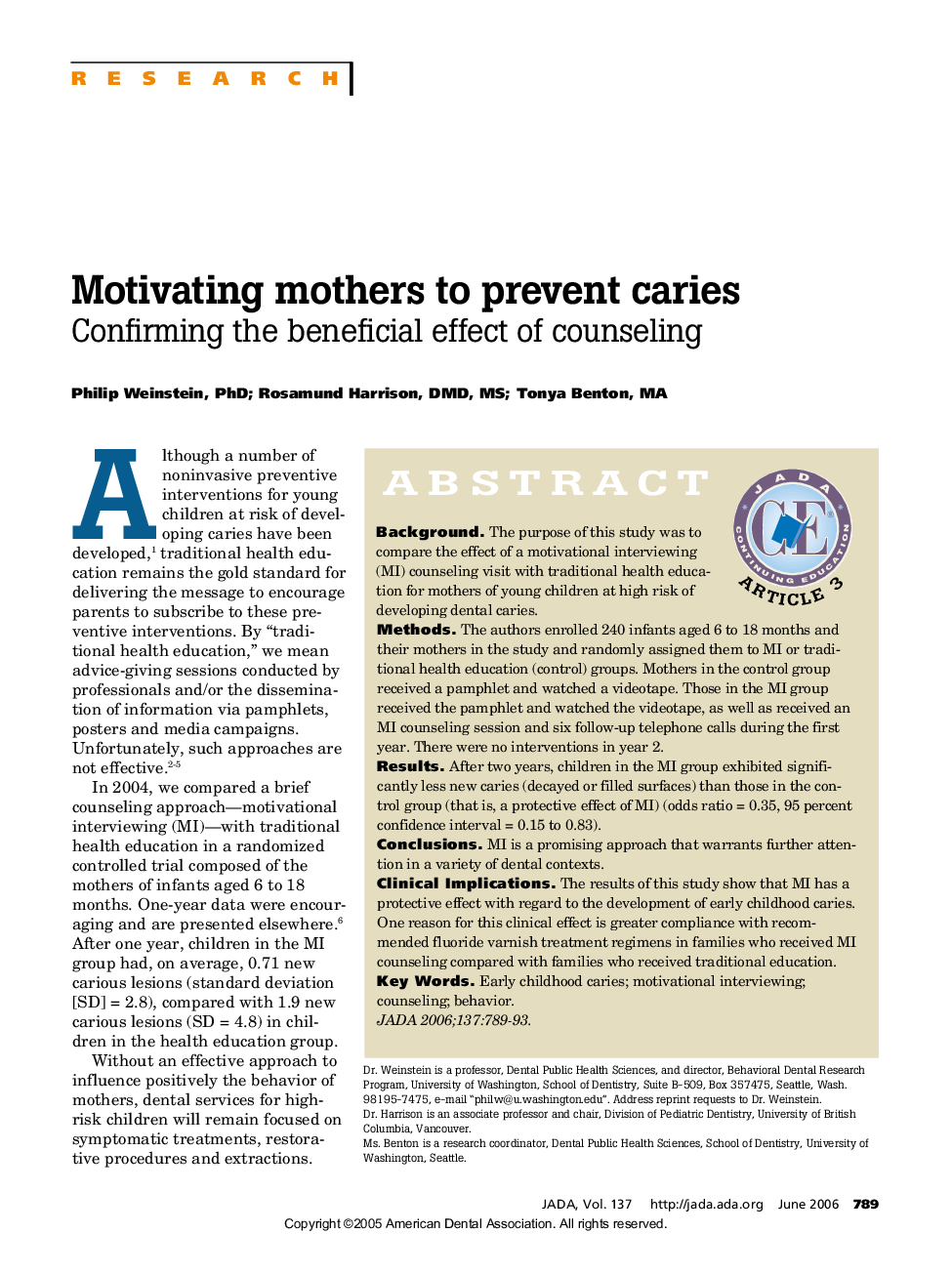| Article ID | Journal | Published Year | Pages | File Type |
|---|---|---|---|---|
| 3140265 | The Journal of the American Dental Association | 2006 | 5 Pages |
ABSTRACT BackgroundThe purpose of this study was to compare the effect of a motivational interviewing (MI) counseling visit with traditional health education for mothers of young children at high risk of developing dental caries.MethodsThe authors enrolled 240 infants aged 6 to 18 months and their mothers in the study and randomly assigned them to MI or traditional health education (control) groups. Mothers in the control group received a pamphlet and watched a videotape. Those in the MI group received the pamphlet and watched the videotape, as well as received an MI counseling session and six follow-up telephone calls during the first year. There were no interventions in year 2.ResultsAfter two years, children in the MI group exhibited significantly less new caries (decayed or filled surfaces) than those in the control group (that is, a protective effect of MI) (odds ratio = 0.35, 95 percent confidence interval = 0.15 to 0.83).ConclusionsMI is a promising approach that warrants further attention in a variety of dental contexts.Clinical ImplicationsThe results of this study show that MI has a protective effect with regard to the development of early childhood caries. One reason for this clinical effect is greater compliance with recommended fluoride varnish treatment regimens in families who received MI counseling compared with families who received traditional education.
